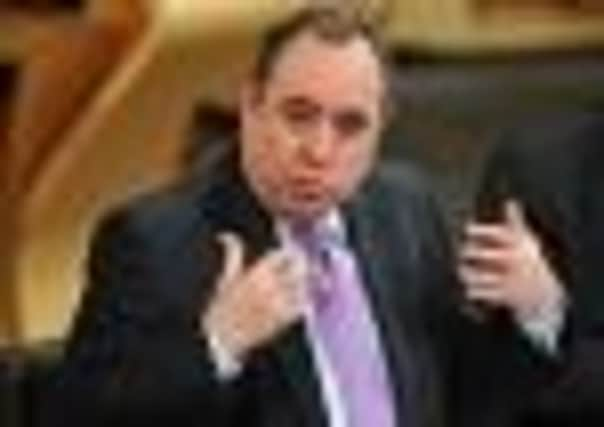Scottish independence: Lord Lawson rubbishes Alex Salmond bank claims


Lord Lawson told The Scotsman that a separate Scotland would not have a seat on the Bank of England’s monetary policy committee, the body that sets interest rates, after the country left the UK.
“An independent Scotland would not, of course, have a seat on the MPC and would have no influence on UK monetary policy and interest rates. Mr Salmond is talking through his hat,” he said.
Advertisement
Hide AdAdvertisement
Hide AdThe Tory peer’s intervention came after Mr Salmond claimed it would be “entirely reasonable” for an independent Scotland to have the same influence over the MPC that the UK Treasury does.


Lord Lawson made clear that the London-based bank would have “no responsibility” for an independent Scotland that opted to keep the pound and “no reason” to give the nation any say over monetary policy.
The UK Treasury has already issued a statement saying an independent Scotland “would have no say over its own monetary policy as set by the Bank”.
Mr Salmond came under pressure to explain his position during a heated First Minister’s Questions, after his deputy, Nicola Sturgeon, said in a televised debate that an independent Scottish government would have a voice on the MPC.
However, Lord Lawson, who was Lady Thatcher’s chancellor for six years, said: “If Scotland chose to use sterling as its currency that would be Scotland’s free and unilateral choice. The Bank of England would have no responsibility for the decision and no reason to give Scotland any say in UK monetary policy.”
The SNP has hardened its opposition to joining the euro in the event of Scotland becoming independent, with finance secretary John Swinney ruling out joining the single currency until at least the middle of the 2020s.
Meanwhile, former Royal Bank of Scotland chief executive Sir George Mathewson, an SNP supporter, insisted an independent Scotland would have a “degree” of influence over monetary policy, as the plan to retain sterling was a “tenable” position.
He said: “No-one would wish to be tied to the euro and there is enough economic interaction between Scotland and England for a sterling area to be possible.”
Advertisement
Hide AdAdvertisement
Hide AdTory MSP Murdo Fraser, convener of Holyrood’s economy committee, said Lord Lawson’s intervention showed the SNP’s policy on retaining the pound after independence was a “bogus” position.
Mr Fraser said: “With the weight of expert opinion building up against them, the SNP have got no case.”
A spokesman for Mr Swinney insisted that an independent Scotland would have “some influence” over monetary policy.